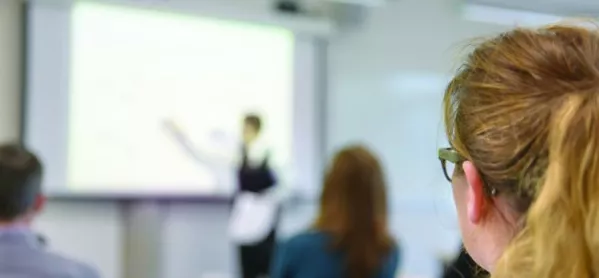- Home
- ‘Teachers are in a position to challenge extremism’
‘Teachers are in a position to challenge extremism’

Every teacher is in a position to challenge grievance narratives, by not allowing black and white thinking or binary world views to take hold, by challenging “us and them” thinking, by showing multiple sides of arguments and by preventing personal setbacks from being interpreted as part of a broader conspiracy.
In these uncertain and divided times, education is frequently touted as our best antidote to extremism and terrorism. But what does this mean, exactly? More educated individuals are significantly overrepresented in terrorist groups, and studies have repeatedly failed to show any demonstrable link between terrorism and education or poverty.
Not only this, but as much as social media is blamed for political polarisation, studies suggest that increasing polarisation actually precedes the social media age and is linked much more to increasing educational attainment.
In this context, no one has ever argued for “less education” as an antidote to extremism - and nor should they - but it does highlight the importance of getting education right when it comes to building peaceful and tolerant societies.
While radicalisation is certainly a contentious issue that draws little consensus, some years ago researchers at King’s College identified ideology and grievance as two necessary drivers for radicalisation to occur.
Extremism and the narrative of grievance
If increased education means an individual is more susceptible to extremist ideologies and grievances, and therefore more susceptible to radicalisation, then how should we respond through education?
While there will be educators confident and capable enough to rigorously discuss extremist ideologies, it is unrealistic to expect the majority to be familiar enough with the intricacies of far-right and jihadist worldviews to compete with the recruiters and radicalisers.
For example, previous efforts have focused on the noble intention of explaining the true meaning of terms like “jihad”. But the truth is that while the brutality may capture the headlines, the propaganda of these groups is much more advanced and these efforts pale in comparison with the intellectual and theological rigour with which jihadists justify their actions and world view.
However, almost all teachers will be in a position to more effectively undermine or build resilience to extremist grievance narratives. Grievance is unique in that it can be both personal and felt on behalf of a group, can be real or perceived and can be both local and global.
Extremist propaganda perpetuates narratives of injustice, humiliation and suffering at the hands of another group - Nazism held Jews responsible for the humiliation of the Germanic people just as Bin Laden held Americans responsible for the state of humiliation he saw as afflicting Muslims.
These global narratives of oppression and suffering can marry up with personal setbacks that can be explained as part of a broader pattern of injustice. The online subculture known as the Incel movement channels male sexual frustration into a comprehensive misogynistic world view that has on occasion emerged into the real world with deadly consequences; as in Toronto last year when a van driver accused of killing 10 people - predominantly women - posted on Facebook just before to praise a woman-hating mass shooter, Elliot Roger.
The Pittsburgh synagogue shootings have provided recent, horrific evidence of the power of grievance. The suspect, Robert Bowers, posted on social media prior to the attack: “HIAS likes to bring invaders in that kill our people. I can’t sit by and watch my people get slaughtered.” This suggests Bowers held a Hebrew aid group (and by extension Jews) responsible for a perceived attack on “his people” by immigrants and refugees - to which violence was a necessary response.
Every teacher is in a position to challenge grievance narratives. This is especially important even if the professional agrees or sympathises with an expressed opinion. It is our responsibility as professionals to (within reason) show different sides of a debate, even when we may not agree, particularly if it is related to world events.
We should not devalue knowledge at the expense of values. Grievance and conspiracy thrive in the grey areas of ignorance and uncertainty. Extremists prey on these gaps and fill it with their own rhetoric, even if the facts suggest something entirely different.
Young people emerging into the world with a more critical and nuanced understanding of global events will be our most effective bulwark against extremism.
Liam Duffy is the director of Since 9/11, an education charity
Keep reading for just £1 per month
You've reached your limit of free articles this month. Subscribe for £1 per month for three months and get:
- Unlimited access to all Tes magazine content
- Exclusive subscriber-only stories
- Award-winning email newsletters